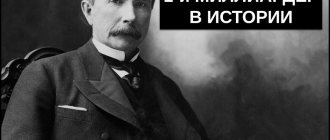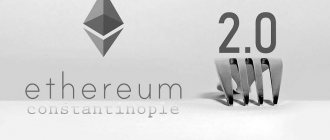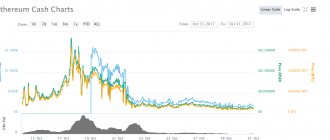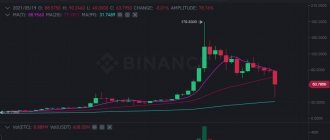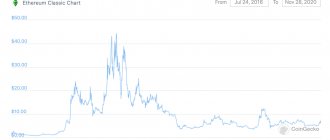The creator of the first cryptocurrency Bitcoin wished to hide under the pseudonym Satoshi Nakamoto. The secret of his personality has not yet been revealed and it is not even possible to say with certainty whether it was one brilliant person or a group of people. But the name of the founder of the second largest blockchain project in terms of capitalization and popularity, Ethereum, is well known. He is one of the TOP 50 most influential young people on our planet and members of his fan club are either jokingly or seriously nicknamed “Vitalik’s Witnesses.”
The biography of the founder of the digital currency Ethereum (ETH) is of interest to many Russians, which is understandable. Vitalik Buterin is one of the best programmers of our time, who has made a technological revolution in the global IT industry. A man with an extraordinary mind and organizational skills, who already at 17 became the co-founder and leading author of Bitcoin Magazine, and 5 years later launched a crypto platform.
Biography
Vitalik was born in 1994 in the city of Kolomna, Moscow region. Father, Dmitry Buterin, is a programmer and businessman. In the 90s he worked in the banking industry. Dmitry Buterin was born in Chechnya in the city of Grozny.
Vitalik Buterin with his father Dmitry Buterin
Vitalik’s mother is Natalya Amelina, an economist-analyst by training. Graduated from the Moscow Institute of Electronic Technology.
Natalya Amelina
Natalya Amelina is Vitalik’s mother. https://twitter.com/natalia_ameline
Childhood
At the age of six, Vitalik moved to Canada with his parents. Since then he has dual citizenship.
At this age, the child was already using the computer with all his might, and this is not surprising, because his father is also a programmer.
Vitalik in childhood
As a child, Vitalik Buterin demonstrated amazing skills in mathematics as well as programming. He had the amazing ability to calculate 3-digit numbers, twice as fast as any other child.
INTERESTING FACT:
At age seven, using Excel macros, he created a complex document called the Encyclopedia of Rabbits. Basically, he came up with a universe filled with rabbits, where all life in that universe is based on very strict formulas. It was full of mathematics, graphs and calculations.
In the third grade of elementary school in Canada, Buterin was placed in a class for gifted children and began to realize even more that he was attracted to mathematics, programming and economics.
Later Vitalik will say:
“Computer code is the Latin of the 21st century”
Canada, Toronto, Abelard School
Vitalik Buterin attended Abelard High School in Toronto.
Why Vitalik and not Vitaly?
When Vitalik emigrated to Canada at the age of six and was still very young, everyone called him Vitalik. At school, this name was more liked by others. As a result, in the Canadian passport, in the “Surname” column, Vitaly is referred to as Vitalik.
student life
In 2012, Vitalik entered the University of Waterloo. He studied in the specialty Computer Science. In other words, he didn’t stay at the university for long.
Buterin and Bitcoin
Buterin learned about Bitcoin from his father at age 17. His passion for cryptocurrency took him out of his studies. While he was at university, he told his father that he was thinking about quitting his studies to travel the world learning more about blockchain technology.
Vitalik Buterin with his father
His father believed that Buterin should continue his studies so that with his abilities he could “find a very good and stable job at Apple, Google and wherever.” Dmitry told Buterin that if he dropped out, his life would be more difficult, but he would learn much more than he could learn at university.
Vitalik Buterin in the media
As mentioned above, Vitalik Buterin was a co-founder and writer for Bitcoin Magazine. Bitcoin Magazine began its activities as an online publication under the leadership of Buterin and Mihai Alisie. The guys were forced to look for work using bitcoins on forums in order to somehow earn money to promote their project. However, in 2012, they began publishing a print version of the magazine, which became the world's first serious print publication entirely dedicated to the world of cryptocurrencies. Bitcoin Magazine was delivered by mail to subscribers around the world. In addition, sales were carried out through the largest American chain Barnes & Noble, and the publication also had an online version.
Vitalik Buterin
Vitalik spent from 10 to 20 hours a week working on publications and did this until 214 inclusive. Bitcoin Magazine is currently owned and operated by BTC Media.
Vitalik Buterin also participated in the scientific journal Ledger, which published articles and research on Blockchain technology. This journal was published by the University of Pittsburgh Library.
Early career
INTERESTING FACT: When Vitalik learned about bitcoins, he wanted to buy them, but he did not have the money to buy them, and there was no way to mine them. So he started writing blog posts, earning 5 bitcoins for each post.
He wrote for the website until it was shut down due to a lack of public interest in Bitcoin.
Vitalik's profile on the forum https://bitcointalk.org/index.php?action=profile;u=7314
Later, a Romanian Bitcoin fan named Mihai Alisi noticed Vitalik's articles and contacted him. They eventually teamed up in May 2012 to create Bitcoin Magazine.
Mihai Alisi
Mihai Alisi is the co-founder of Bitcoin Magazine and Ethereum.
The magazine was published in electronic and printed form and wrote about Bitcoin news and cryptocurrencies.
Bitcoin Magazine
You can still find and read this magazine on the website https://bitcoinmagazine.com/authors/vitalik-buterin
Vitaly Buterin about the world of blockchain and cryptocurrencies:
About Ethereum
For me it has never been a question of money, it is primarily an idea
About the prospects of blockchain
The first of them is, of course, financial, the next ones are Internet security, logistics and everything related to the reliable storage of information.
About ICO
No more than 10% of them will survive. The main problems of ICOs are the lack of benefit from a large number of tokens with a great desire to simply get a lot of money and people’s inattention to the teams that promote certain ICO ideas.
About the main paradox of the blockchain
Its main goal is security, but because it is a new technology, it has a lot of security problems.
About Russia
Everyone is discussing blockchain here, from students and businessmen to officials. Nowhere else in the world is there such a desire to implement this technology.
Ethereum Founding
Buterin dropped out of university in 2013 to focus on research into blockchain technology.
He's writing:
“I traveled all over the world, researched many crypto projects and finally realized that they were all too limited to specific applications...”
Vitalik in India
During his travels, he saw many different projects related to Bitcoin, from small shops in New Hampshire and restaurants in Berlin accepting Bitcoin, to ATMs and various small communities around the world. However, all of them were mainly focused on how to improve and promote Bitcoin's function as money.
In October 2013, he visited Israel, where he met with people working on the CovertCoins and MasterCoin projects. These projects explored the use of blockchain technology for various other applications, e.g. issuing tokens on top of Bitcoin, allowing users to use financial contracts.
After looking at the protocols that these projects used, Vitalik realized that it was possible to massively generalize what the protocols did by replacing all of their functionality with Turing Completeness
INTERESTING FACT: In computer science, a Turing complete programming language is something that allows a computer to solve any given problem, given the appropriate algorithm and the required amount of time and memory.
In addition, Vitalik realized that Bitcoin did not have a scripting language for application development, and eventually discovered that it was possible to develop a new blockchain-based system that developers could use to create decentralized applications (Dapps).
A complex idea that even Buterin himself did not believe in
Initially, Vitalik presented his idea to existing projects, but everyone told him that although it was an interesting idea, the time had not yet come to carry out such grandiose things. So he decided to implement everything himself.
INTERESTING FACT: It is worth noting that he himself was quite pessimistic about his Ethereum project and expected at least five cryptography experts to come forward and present to him the most obvious shortcomings of his idea.
Buterin wrote about his ideas and findings and published a white paper in late 2013. At that time he was 19 years old. Buterin’s goal was to create decentralized applications on the blockchain.
According to the white paper, Ethereum was described as “a combined decentralized mining network and software development platform.”
This approach makes it easier to create new cryptocurrencies and programs that share a single blockchain.
Whitepaper Ethereum
INTERESTING FACT: Vitalik chose the name Ethereum after noticing it in a science fiction article on Wikipedia.
Vitalik sent this document to 15 of his friends, who, in turn, sent it on. As a result, about 30 people contacted Vitalik to discuss the concept. He expected critical reviews and people pointing out critical errors in the concept, but this did not happen.
On the contrary, this work attracted attention and earned Vitalik a $100,000 Peter Thiel Fellowship. This award is given to young people for the implementation of innovative projects.
At this point, Buterin saw a definite future for himself and devoted himself entirely to working on Ethereum.
Team
In addition to Buterin, the original participants in the project are Mihai Alisi, Anthony Di Lorio and Charles Hoskinson (creator of the Cardano cryptocurrency).
They were then joined by Amir Chetrit, who had worked with Buterin in Israel on a Bitcoin project called ColoredCoins, and Gavin Wood, a UK programmer who turned Buterin's white paper into working code over the Christmas holidays.
ethereum team
Fateful conference
At the conference (BTC Miami 2014), wearing an Ethereum T-shirt, Vitalik spoke on stage, outlining the essence of his project. His speech was monotonous and rather difficult to understand, but upon completion, all the listeners gave a standing ovation. After Vitalik’s speech, there was already a large line of people waiting to talk.
Performance at BTC Miami 2014
You can watch the recording here (in English).
They were prevented from starting fundraising immediately after the conference by current US legislation, because receiving money from unaccredited investors could lead to sanctions from the US Securities Commission.
Development began in early 2014 through the Swiss company Ethereum Switzerland GmbH (EthSuisse), and later through the Swiss non-profit Ethereum Foundation (Stiftung Ethereum).
INTERESTING FACT: Switzerland was chosen for being friendlier than most countries to a project that could actively undermine the legal and financial systems.
Ethereum Foundation Switzerland
Cryptocurrencies
It was only after the young man started publishing his own magazine that he realized that he was much more interested in blockchain than Bitcoin. He saw shortcomings in technology and set out to solve this problem.
While the developers were creating a blockchain-based cryptocurrency, Vitalik founded a platform into which applications could be embedded. The main idea of the project was the introduction of technology with a wide scope of application. It was called "Ethereum".
After the celebrity had an initial idea, he shared it with friends, and they, in turn, told their family and friends about it. Soon Vitalik had 20 like-minded people who agreed to help with creating a startup, programming and marketing.
Since it was decided to make the project non-profit, money for its implementation was collected through a crowdsale: people sent 1 bitcoin to the developers, and in return received 2000 units of a new cryptocurrency - “ethers”. As a result, we managed to accumulate 30 thousand bitcoins, which went towards the team’s salaries.
Vitalik Buterin with his father / uznayvse.ru
Buterin presented the Ethereum project at the Thiel Fellowship competition and was awarded a $100 thousand scholarship, which was a big impetus for the further development of the platform. Already in 2015, the name of the programmer became known to European and American users, one way or another connected with the blockchain.
Ethereum made the tasks of blockchain technology developers easier, because they were cramped under the current functionality. “Ether,” as proposed by the celebrity, is not an alternative to fiduciary money, but rather a method of controlling the use of resources. The more complex the operation performed, the more “ethers” you have to pay. The platform makes it possible to limit the actions of unscrupulous users.
Soon after its founding, Ethereum offices appeared in Switzerland, Germany and the Netherlands. According to the celebrity, the team has specialists from different countries, and he knows everyone by sight. The creator of the project travels a lot, communicating with like-minded people to improve the idea.
In 2022, Vladimir Putin himself met with Vitalik. The young programmer told the president about options for using Ethereum in the Russian economic space. The head of state supported Buterin’s ideas and wished him success, which gave hope for the further development of cryptocurrency in the Russian Federation.
View this post on Instagram
A post shared by Spletnik (@spletnik_ru)
Vitalik Buterin now
Buterin commented on the interest of top government officials in the project as follows: “in the 21st century, 90% of the economy will be digital,” adding that the meeting with the president was just the tip of the iceberg, an insignificant part of a process that began long before.
That same year, Buterin held meetings with the heads of Sberbank and Vnesheconombank. According to Forbes magazine, even then he was included in the list of 600 brightest young people. The Russian publication Vedomosti awarded the programmer the title of “Professional of the Year.”
It is known that Vitalik interacts with JP Morgan, Reuters, Microsoft, ING, who appreciated the universality of the idea. Companies are developing blockchain projects, receiving effective support from a platform created by a celebrity. Russian corporations also use Ethereum. For example, Alfa Bank.
2020 became a significant stage in the biography of the programmer. He announced the launch of Ethereum 2.0. Although the transition process was delayed and was repeatedly interrupted due to difficulties, this led to an increase in the price of ether.
Development and launch of the project
During its initial crowdfunding campaign, Ethereum became the second most popular project in internet history.
Financial problems and their solutions
After months of being in business, Ethereum has accumulated huge debts to lawyers. Instead of selling shares or debt, the company launched a crowdsale where everyone could buy Ethereum (ETH) tokens for another digital currency - Bitcoin.
Ethereum sold 2,000 ETH tokens for the price of one Bitcoin, but the price later rose quickly. At that time, Bitcoin was worth $600.
Ethereum was selling for $0.30. In 42 days, Ethereum collected more than 31,000 bitcoins, or $18.4 million.
The project was launched in the summer of 2015. At the moment, Ether is the second largest digital currency by capitalization - this was made possible thanks to the extraordinary abilities of the young programmer.
State
Given the largest percentage of Buterin's net worth, his Ethereum wallet ranks 24th in the ranking. With a current balance of 350,000 ETH, his assets are approximately $62 million and his coins are worth $176 each.
On March 19, Alex Sunnarborg, the founding partner of New York-based hedge fund Tetras Capital, analyzed Vitalik Buterin's Ethereum transactions in an attempt to value his fiat holdings.
Vitalik's condition
Source: Alex Sunnarborg
Sunnarborg linked current Ether prices to the timing of transactions in Buterin's wallet address. Based on this data, Sunnarborg estimated that Vitalik received $49 million for selling 545,000 ETH since March 2016.
Vitalik then publicly adjusted Sunnarborg's estimates, stating that his fiat (paper) funds were "significantly less" than $30 million when his $8 million charitable donations were subtracted and the more precise timing of the transactions was taken into account:
“My fiat funds are less than $30 million. You probably overpriced them because (1) you calculated all prices at the highest rate. I've definitely never cashed out close to the $915 level, (2) you forget about the charitable donations (~$8 million)"
— Vitalik (@VitalikButerin) March 19, 2022
However, Vitalik Buterin may also have earned income from other sources, such as consulting or speaking engagements. For the purposes of these calculations, Buterin's cash from the sale of Ethereum would be valued at $25 million.
Valuations of Buterin's cryptocurrency holdings
In addition to Ethereum, Vitalik Buterin also holds many other coins. According to the February announcement, Buterin holds approximately $690,000 in ERC20 tokens and Ethereum-linked holdings in Maker (MKR), $625,000 in Augur (REP), $65,000 in OmiseGO (OMG), and $25,000 in Kyber Network ( KNC). These holdings total approximately $1.5 million.
Meanwhile, his non-Ethereum related holdings: Bitcoin (BTC), Bitcoin Cash (BCH), Dogecoin (DOGE) and Zcash (ZEC), all make up less than 10 percent of his total ETH holdings, according to Buterin's statement. The exact amount of these funds has not been disclosed, but for these calculations it would be valued at $1 million.
Owning shares in two startups
Buterin also said he owns a "significant" stake in two corporations, Clearmatics and StarkWare.
Clearmatics is a blockchain development company and StarkWare Industries Ltd. is a software company that is trying to solve the scalability and privacy issues of blockchains.
Between Series A and seed rounds, Clearmatics raised $13.3 million and StarkWare raised $36 million, according to Crunchbase.
On average, 15 percent of the shares were distributed in the seed round, according to LawTrades and Y Combinator. In its Series A round, the startup distributed an average of 35 percent of shares. Therefore, if 50 percent of each company's shares were allocated, then their Series A valuations should be about twice as high.
For the purposes of these calculations, Clearmatics and StarkWare would be valued at $27 million and $52 million, respectively.
Assuming (arbitrarily) that Buterin has at least a 5 percent stake in each company from the initial investment, that would mean he would be worth roughly $4 million.
Salary from the Ethereum fund
Finally, Buterin mentioned that he receives a salary from the Ethereum Foundation. In 2016, he stated that he received $150,000 a year. Assuming his salary remained unchanged, he received approximately $500,000 in salary from January 2016 to date.
Estimation of Vitalik Buterin's net worth
With $47 million in ETH, $25 million in cash from token sales, $2.5 million in other cryptocurrencies, $4 million in equity, $500,000 in salary, Vitalik Buterin's net worth would be around $79 million.
However, the true value of his net worth can reasonably range from $60 million to $110 million.
In Russia
Additionally, these numbers do not include Buterin's brand, his role in the ecosystem, and other intangible assets that are difficult to quantify but still undoubtedly valuable.
Hack The DAO. Ethereum hard fork
The description of this unique and truly worthy episode should begin with the fact that in addition to decentralized applications, DAOs can be created on the Ethereum platform. DAOs are Decentralized Autonomous Organizations. DAOs are certain long-term structures that store digital assets and manage them in accordance with pre-agreed rules. These rules are transparent and described in smart contracts by one or more developers. There is also an initial period during which users can purchase tokens that provide the right to participate in this organization. Tokens can be purchased by sending funds to the DAO. Once the token sale is completed, the DAO begins to function. Users can choose how the DAO will spend funds. Those who own the tokens get the right to vote and choose how the organization's fund will be used. You should know that purchased tokens do not actually give ownership rights. They just give people the right to vote up or down. Bitcoin is essentially the first DAO, which is governed by consensus between the core team and the mining community. All other DAOs were created on the Ethereum platform.
So we come to the point. The DAO is the name of one of the DAOs on the Ethereum platform, which was created by the German startup Slock.it. The app offered smart locks that allowed people to rent out, for example, a car or an apartment on a sort of decentralized version of Airbnb. Surprisingly, The DAO became the largest crowdfunding project at the time, raising $150 million. More than 11 thousand investors from all over the world took part in it. This was a huge amount of money that the founders of the organization did not even dream of collecting.
And then The DAO was hacked by a hacker. What is important to know about this hack is that the hacker did not exploit a vulnerability in the Ethereum platform, but a bug in The DAO smart contract. The platform itself functioned excellently. However, on June 17, 2016, someone began siphoning funds from The DAO into a “child DAO” with a cloned structure. As a result, the hacker managed to steal $50,000,000 in Ether cryptocurrency. The price of the coin on the market fell sharply from $20 to $13. The Ethereum team had nothing to do with The DAO and its hack, but they were the ones who had to take responsibility and restore order.
They stopped the withdrawal of money and sent it to another smart contract, but this was only a temporary measure. Due to a global error in The DAO smart contract, the hacker still had control over the funds stolen from investors. And then the Ethereum developers decided to roll back the blockchain. In the language of the crypto world, this is called a hard fork.
This decision was received ambiguously in the crypto community, because it violated the basic principle of decentralization. No one should have sole control or power over the network. All changes must be agreed upon by consensus. However, the team decided to roll back the network using a hard fork and return the stolen funds to investors.
A new version of the Ethereum network was created with some differences from the original. After the hard fork, miners, exchanges and other users had to decide which version of the network they would remain on. In addition, a vote was held among Ethereum coin holders and 89 percent voted in favor of the split. As a result, on July 20, 2016, the Ethereum network experienced a division.
As a result of this division, the old branch of the Ethereum blockchain was named Ethereum Classic, and the new one, under the leadership of the Ethereum team, continued to develop as Ethereum. The hard fork occurred at block 1920000. Investor funds were returned, and Ethereum Classic is the same original Ethereum that was before the fork.
However, this situation has caused many problems. The emergence of a second blockchain is misleading for investors and ordinary users. In addition, “replay attacks” on both networks cannot be ruled out. Such an attack allows a transaction to be repeated on another blockchain without the user’s knowledge, since the cryptographic signature that confirms that the transaction has already been completed is recorded on another blockchain.
Personal life
Vitalik Buterin is a shy person and doesn't talk about himself much.
Buterin looks at the girl
What is Vitaly Buterin's IQ?
Although it is safe to say that he is a genius, Buterin's IQ is unknown.
What is your marital status?
Marital status unknown.
Political Views:
Like many cryptocurrency supporters, Buterin expresses strong libertarian views and names Milton Friedman, Ludwig von Mises and Ayn Rand as his favorite economic thinkers. However, he also expressed the view that the point of total freedom is not simply about profit, but rather about unleashing creativity and meaningful innovation.
Disease
In many media (and on forums https://bitcointalk.org/index.php?topic=1565012.0) Vitalik Buterin was considered an adult autist and his health problems were noted. There is also a strange story from his childhood that shows that he once swallowed an entire lemon fruit along with its peel.
However, there is no information about his illness in official sources or from Vitalik himself.
We, of course, are not doctors, therefore we will not discuss the state of his health.
Charity
By continuing to work on updating the Ethereum platform, Vitalik Buterin is helping other promising startups develop. He considers the fight against aging of the human body one of the main directions of modern science. In 2022, a non-profit foundation dealing with the problem of aging received approximately $2,500,000 in ETH cryptocurrency from him.
In addition, Vitalik supports the Sens Research Foundation , which is trying to find an effective cure for cancer and other serious diseases (heart pathologies, Alzheimer's ) and the Internet Archive . This is a web platform with a free exchange of information and on which a lot of digitized materials are available.
By the way, employees of the Internet Archive project receive salaries only in virtual coins.
List of awards
- In 2012 he was awarded a bronze medal at the International Olympiad in Informatics
- Thiel Fellowship Award in 2014
- World Technology Award in the software category in 2014.
- Named to Fortune's 40 Under 40 list in 2016 (ranked 31st)
- Forbes Under 30 List, 2018
- Fortune ranking “40 under 40” 2022 - 10th place
- Honorary doctorate from the University of Basel, 2018
Buterin now
Buterin now lives in Singapore. He has also contributed to open source projects in related fields. These include the DarkWallet, Bitcoin Python, Kryptokit, pybitcointools, multisig.info, btckeysplit and Egora libraries.
Buterin's influence on the cryptocurrency community and the market should not be underestimated: in mid-2022, when pranksters spread false rumors that he had died in a car accident, the value of Ethereum fell by almost a third.
Of course, the world of cryptocurrency users and investors is still very interested in Buterin and his work.
Fake news about death
4chan - an anonymous imageboard became the source of the news that Vitalik Buterin died in a car accident. This post was made on 4chan on June 25, 2022. Ethereum immediately responded to this by losing more than $4 billion in capitalization. And although the price of the Ethereum cryptocurrency quickly regained its positions, this event showed how important Buterin’s personality is for the entire cryptocurrency movement. Most likely, the anonymous creator of Bitcoin acted prudently when he hid his identity, protecting his project from such excesses. Vitalik debunked this rumor by publishing his photo and the data of the most recent block in the Ethereum blockchain.
Vitalik not dead
Interesting Facts
- Fashion king
Vitalik Buterin has specific tastes in clothing: a fancy T-shirt and watch are a completely natural look for Vitalik at serious conferences.
Buterin at a serious business conference
Vitalik's watch
Vitalik in a T-shirt with a unicorn
Buterin in the “thug life” style
2. Badger dance
Along with his unusual clothing style, Vitalik can perform the badger dance:
Performs the badger dance
Vitalik can also rap:
Performs rap
3. Strange photos
You can find many strange photos of Buterin on the Internet. However, any famous person has a couple or three strange photos.
Strange photo
Always happy about the growth of Ethereum
…
4. Computer games
At the age of 13, Vitalik Buterin was more focused on earning extra levels by playing World of Warcraft, to the point that he neglected his homework. That all changed one day in 2010 when his character was changed due to a Blizzard update. He continued to cry, unable to sleep, then left World of Warcraft entirely.
5. Thought Bitcoin would fail
When Vitalik first learned about Bitcoin, he thought it didn't make economic sense. However, after hearing about it a few more times, he began to show interest.
6. Government regulation
Buterin has always been skeptical about government regulation and corporate control. It was the decentralized and unregulated nature of Bitcoin that sparked his interest in the project. Interestingly, he is motivated by the belief that the “powers that be” have too much power.
Buterin and banker Sergei Gorkov
7. BTC
At 19, he used his bitcoins to finance his travels around the world. As a result, he was able to meet the people who developed the Bitcoin protocol.
Buterin travels
8. Rumors of death
Finally, there were rumors of his death in 2022. The false news came from 4Chan on June 25th. The report stated that he was involved in a car accident that took his life. This rumor led to a sharp drop in the price of Ethereum, highlighting the importance of its creator to the project.
From programmer to "guru"
In the first couple of months, the founders of Ethereum ran out of money, and they actually went to ICO - they sold ether for bitcoins. The initial rate was only 30 cents per token. But 42 days of sales brought in almost $19 million.
It is important to note that the release of cryptocurrency was not the goal of the creators of Ethereum. They defined it primarily as “software accessible to everyone, protected from unauthorized access,” that is, as a platform for decentralized applications and smart contracts that anyone can use. But the secondary importance of Ethereum’s financial indicators for its founders did not prevent Vitalik from entering the top 20 people who became rich on the blockchain. Forbes estimates his fortune at $500 million.
From this period, Vitaly Buterin’s activities were not limited to work on the development of Ethereum; a large number of meetings, conferences and interviews appeared in his schedule.
In 2022, at the economic forum in St. Petersburg, he met with Russian President Vladimir Putin, and part of it took place behind closed doors. A month after it, the creation of a joint project “Masterchain” between Vnesheconombank and Ethereum was announced.
The head of Sberbank, German Gref, described Vitalik’s level as follows:
When Buterin talks about blockchain, Stanford professors take out their pens and notepads and start taking notes.
Now Vitalik Buterin is one of the few well-known representatives of the blockchain world who is very cautious about the prospects for the cryptocurrency market. For example, in February of this year, he wrote on his Twitter that this is a very hyper-volatile area and it may well drop to zero. So in June 2022, the rate of the ether itself fell by 15% only because of rumors that Vitalik died in an accident.
What's the result?
Undoubtedly, Buterin is a very influential figure in the world of cryptocurrencies, finance and blockchain.
And maybe Ether has not yet become that decentralized tool that would make the lives of many people easier. Ethereum does not yet have the high scalability, applicability and ease of use that we would like to see. But Vitalik gave the world a completely new look at blockchain technology and the possibilities of its application.
Ultimately, gunpowder was also created not for weapons, but for holidays, fireworks and other entertainment. Likewise, Ethereum was not created for scam ICO projects, in which people lost money, and the developers went off into the sunset with the collected funds. Ethereum was created as a blockchain platform for any application that humanity can come up with. However, time and the market will put everything in its place.
However, Buterin is not the only key figure in the world of blockchain. Return to the People section to learn interesting facts about other major drivers of the crypto industry.
Sweet dream
For Buterin, Ethereum is not just a business, it is an idea that should improve the lives of humanity. This is partly confirmed by the fact that at the initial stage the founders of the project were unable to think through a competent financial component. Ethereum is in many ways a group of like-minded people who work for an idea.
In a recent interview, Buterin and the chairman of the supervisory board of the Ethereum Foundation, Vladislav Martynov, said that they created Ethereum “in order to make the world more open and fairer, so that the world would be less dependent on intermediaries and monopolistic corporations.” They see no limits to the use of their product. According to them, these could be generally accepted projects in the field of finance and bank transfers, and, for example, a way to “hold the fairest elections in the world, where every vote is counted.”
In 2022, 23-year-old Buterin risks joining the completely different rankings of Bloomberg and Forbes magazine: if the development of cryptocurrencies does not slow down, we will see the creators of ether in the ranking of the richest people on the planet.



